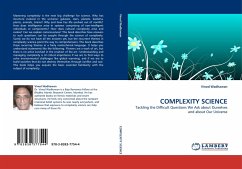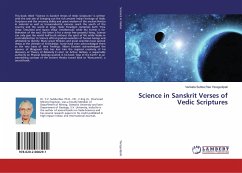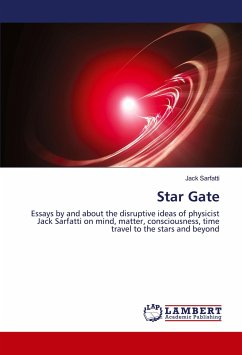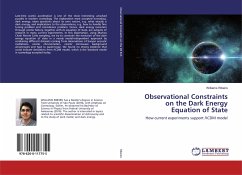
COMPLEXITY SCIENCE
Tackling the Difficult Questions We Ask about Ourselves and about Our Universe
Versandkostenfrei!
Versandfertig in 6-10 Tagen
52,99 €
inkl. MwSt.

PAYBACK Punkte
26 °P sammeln!
Mastering complexity is the next big challenge for science. Why has structure evolved in the universe: galaxies, stars, planets, bacteria, plants, animals, brains? Why and how has life evolved out of nonlife? How does intelligence arise in systems comprising of non-intelligent individuals or components? How does cultural complexity arise and evolve? Can we explain consciousness? This book describes how answers to such questions can be sought through the science of complexity. Surely we do not have all the answers yet, but the recurrent themes in complexity science point the way to comprehensio...
Mastering complexity is the next big challenge for science. Why has structure evolved in the universe: galaxies, stars, planets, bacteria, plants, animals, brains? Why and how has life evolved out of nonlife? How does intelligence arise in systems comprising of non-intelligent individuals or components? How does cultural complexity arise and evolve? Can we explain consciousness? This book describes how answers to such questions can be sought through the science of complexity. Surely we do not have all the answers yet, but the recurrent themes in complexity science point the way to comprehension. This book describes these recurring themes in a fairly nontechnical language. It helps you understand statements like the following: 'Flowers are a work of art, but there is no artist involved in the creation of the art. Understanding and managing complexity is of critical importance if we are to find ways to solve environmental challenges like global warming, and if we are to build societies that do not destroy themselves through conflict and war. This book helps you acquire the basic essential familiarity with the subject of complexity.














